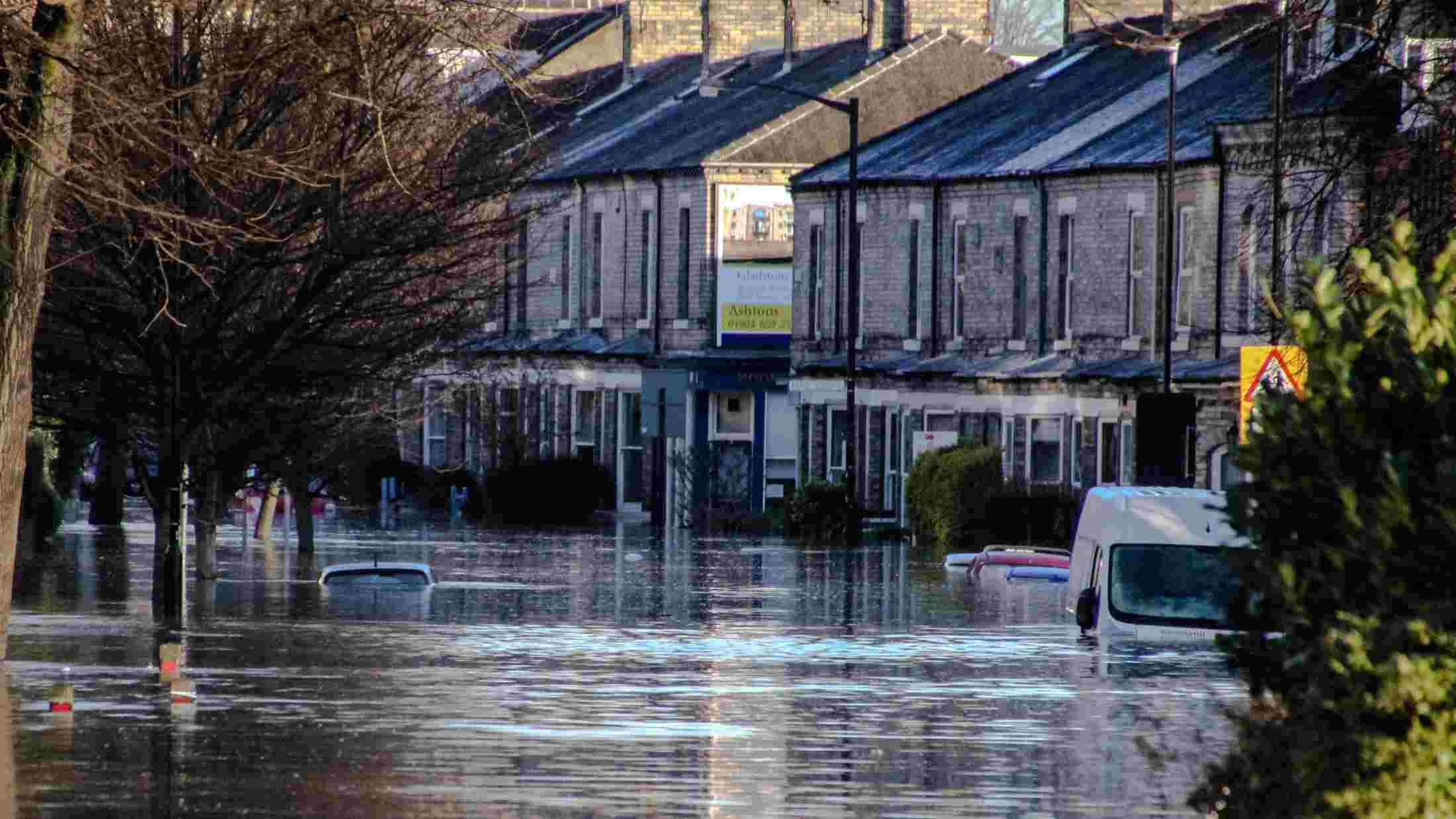In this guide:
- Staying safe during a flood
- Preparing yourself for flooding
- How to protect your property before a flood
- What to do after a flood
- Making a claim when your property is damaged by flooding
Staying safe during a flood
- Always follow the advice from emergency services. If they tell you to evacuate, do so immediately.
- Try to stay safe by avoiding flood water. The water might be deeper than you think, and there may be hazards in it.
- Flood water is likely to be dirty and contaminated, so try to avoid it where possible. If you come into contact with flood water, make sure you wash and disinfect your hands afterwards).
- If you live in a flood area, sign up to government flood warnings. You can do this online, or by calling them on 0345 988 1188.
Preparing yourself for flooding
-
Prepare an emergency kit. It could be useful if you get stuck in your home. It should include waterproof clothes, non-perishable food, bottled water, any medication you take, and a battery powered radio.
You might want to add a portable charger for your mobile too. Just make sure it's fully charged for when you need it.
- Keep your mobile fully charged and make sure it contains useful numbers. For AXA Home Insurance claims call 0330 024 80861.
- Speak to your local council for more advice.
How to protect your property before a flood
- If it’s safe to, close any flood gates and put down sandbags to stop water from entering your property.
- If you have time, move vulnerable items upstairs or to higher areas. Paperwork, important documents and family photos should be stored somewhere high up.
- Put plugs into sinks and baths. If you can, weigh them down too.
- Take down long curtains or drape them over the curtain rail to keep them away from the floor.
- Before leaving your property, unplug electrical devices and turn off the gas, electricity, and water.
Read our article, ‘How to fortify your home against flood damage’, for more ideas on how to keep your home and its contents safe and dry.
After the flood
- First, make sure it’s safe to return. If it is, don’t use any gas or electrical supplies until the appropriate checks have been made.
- Remove air brick covers and other flood prevention equipment.
-
Get in touch with your insurer and take photos of damage to help with your claim. Your insurer could help start the drying out process. Depending on the type of claim and the damage done, drying could take some time.
For flood claims, your insurer will normally ask a loss adjuster to visit your property and project manage your claim.
Making a claim when your property is damaged
If you’ve got an AXA Home Insurance policy, we can offer you support, a fast response, and assistance to get you back to normal as soon as possible.
Check you’re covered
Before you start your claim, you can check what you are and aren’t covered for in your policy documents. You’ll find them in your online account.
If you have an AXA Home Insurance policy, the fastest way to make a claim is online. Send us your claim quickly and easily, 24/7, through your online account. We’ll follow up by calling you the next working day.
If you’d prefer, you can call us on 0330 024 80861.
Insured through a broker? Please get in touch with them to make a claim.
We’re here to take your call:
- Monday to Friday: 8am to 8pm
- Saturday: 9am to 5pm
- Sunday and bank holidays: closed
If you call outside of these times, you’ll reach our out of hours service. You’ll be able to leave the details of your claim, and we’ll get back to you during our main office hours.







